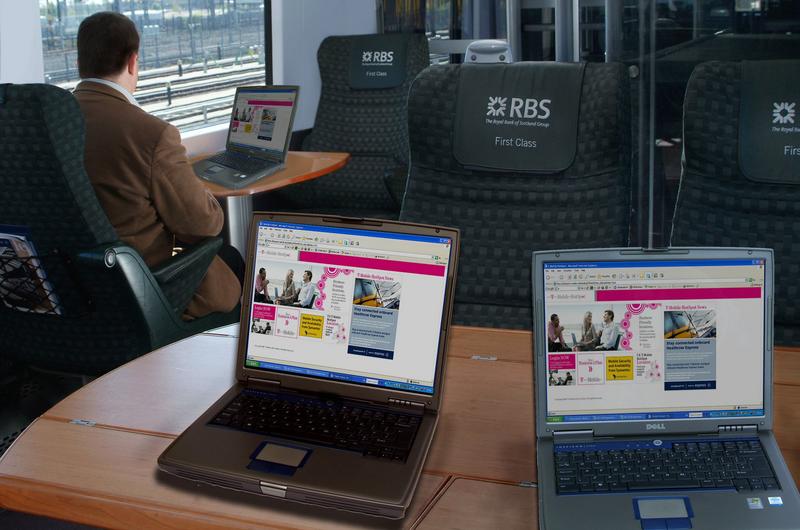Heathrow Express signals launch of in-train Wi-Fi service
Those heading to or from the airport can now stay connected thanks to a 2 Mbps service provided by Nomad Digital and T-Mobile.

Passengers travelling on the Heathrow Express can now make use of in-train Wi-Fi access, following the launch of a new service today.
The official launch at Paddington this morning marked the completion of the project between Heathrow Express, Nomad Digital, a UK company specialising in data links to trains and T-Mobile.
How much surfing can you do in a journey that is only scheduled to last 15 minutes?
That's not the point, said Brian Raven, managing director of Heathrow Express. For the high-powered customers who frequent the train "every second counts" he insisted.
"They are people who value their time, and now they can be in contact doing business in a reliable and fast way," he added.
The Wi-Fi hotspot service will provide passengers with a connection speed of up 2 Mbps throughout the journey, including the 6km tunnel section. The Wi-Fi service is intended to complement existing hotspots in Central London and Heathrow. This means that access passes, which can be purchased on-board, can also be used at either end of the journey.
Around 15,000 passengers use the Heathrow Express service daily, said Raven.
Get the ITPro daily newsletter
Sign up today and you will receive a free copy of our Future Focus 2025 report - the leading guidance on AI, cybersecurity and other IT challenges as per 700+ senior executives
The service was first announced back in November. Originally it was planned to support speeds of up to 8 Mbps, but this has been scaled back.
T-Mobile has already enabled Wi-Fi support on the Brighton Express to London, but whereas that service relies on GPRS when trains go through tunnels - resulting in horribly slow or dropped connections - the Heathrow Express will use WiMax technology within tunnel sections to fully maintain connections.
Nigel Wallbridge, executive chairman of Nomad Digital, said the Heathrow link was important for two reasons. First, London was "the world's capital" and it was significant that London was the first major city to have its airport shuttle Wi-Fi enabled.
Secondly, he emphasised the data-sharing aspects of full onboard communications. Over and above the connectivity provided to passengers, maintenance data could be transmitted so that the train's engineers are in better control of their rolling stock, there was improved access to staff for the company and there was the prospect of 'live CCTV' pictures being available.
Nomad also emphasised how straightforward the WiMax technology was to implement in the 30m deep tunnels, given that there was no interference to the signal.
It anticipates that such implementations will be rolled out to other metro systems and underground networks.
For T-Mobile's part, it is a further expansion of its strategy of 'setting the internet free' via mobile broadband access. With its first hotspot dating back to 2003, the company now has 1,000 across the UK, said Richard Warmsley, the company's head of Internet on the Move.
"The internet now matters too much to be tied down," he declared.
"Today is another vital piece in the jigsaw of bringing mobile broadband to our customers throughout the UK."
-
 Should AI PCs be part of your next hardware refresh?
Should AI PCs be part of your next hardware refresh?AI PCs are fast becoming a business staple and a surefire way to future-proof your business
By Bobby Hellard
-
 Westcon-Comstor and Vectra AI launch brace of new channel initiatives
Westcon-Comstor and Vectra AI launch brace of new channel initiativesNews Westcon-Comstor and Vectra AI have announced the launch of two new channel growth initiatives focused on the managed security service provider (MSSP) space and AWS Marketplace.
By Daniel Todd